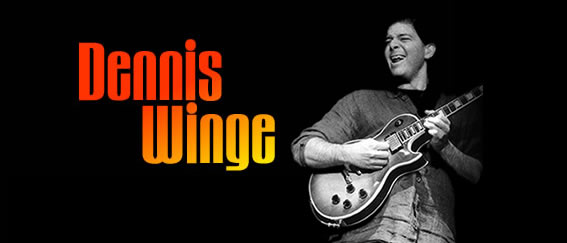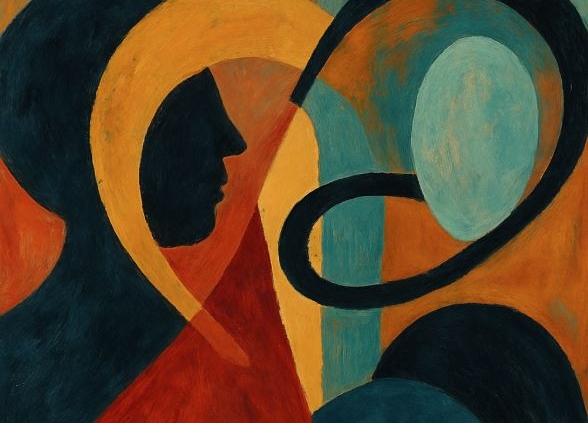What Is Musicianship—and Why Does It Matter?
The Listener’s Perspective vs. the Musician’s Responsibility
When someone listens to a performance, they don’t think about how much technical work went into it. Just as when a person looks at a painting, they don’t ask how many hours the painter spent studying color theory or anatomy—they simply ask: Do I like it? Does it move me?
That’s perfectly natural. Audiences should not need to know the effort behind the art. But for musicians, the equation is different. Musicianship isn’t optional—it’s the invisible force that shapes every note, every phrase, every decision. Even if listeners can’t articulate it, they feel it. Strong musicianship pervades everything a musician does.
Defining Musicianship: A Slippery but Essential Term
“Musicianship” is a word we throw around often, but what does it really mean? To me, it’s the sum total of all the musical work you’ve done in your lifetime:
-
Your technical ability on your instrument
-
Your rhythmic sense and timing
-
Your ear for tone and dynamics
-
Your theoretical knowledge and harmonic awareness
-
Your repertoire of songs and styles
-
Your sensitivity to musical context—what to play, when, and why
Musicianship isn’t any single one of these things. It’s the accumulation of decades of work, practice, listening, and performing. It’s like a fingerprint—unique, ever-changing, and impossible to fake.
An Anecdote: The Cover Band
Recently, after finishing a cocktail-hour gig at a wedding, I overheard another band preparing to play in a nearby building. They launched into a well-known cover song. The performance was tight and well-rehearsed, but their arrangement felt unconvincing. To my ear, their collective musicianship had hit a ceiling.
It wasn’t that they were “bad”—far from it. They were polished, consistent, and professional. But the choices they made in arranging the cover betrayed a lack of deeper musical development. They would never have arranged the tune that way if their musicianship had been broader, deeper, and more nuanced.
This experience reminded me of an important truth: musicianship influences every decision we make, whether or not we’re conscious of it.
Musicianship as a Lifelong Alphabet
I often think of musicianship like the alphabet. Suppose your development is at “K.” When you listen to someone at “D” or “F,” you might recognize their effort, but you’re unlikely to be moved. Conversely, when you encounter musicianship at “Y” or “Z,” you can’t help but be blown away—even if the genre isn’t your personal favorite.
That’s why I believe musicians should never stop striving. You don’t plateau at “K” and decide to camp there. You keep climbing.
Complacency vs. Growth
Here’s a reality: many musicians stop developing their musicianship at some point. Life takes over. Families, jobs, hobbies, and other responsibilities claim attention. And that’s not wrong—being a good parent, partner, or member of the community is incredibly valuable.
But for me, I’ve chosen to prioritize musicianship alongside life’s other duties. Every album I’ve recorded felt like the pinnacle of my ability at the time. But a few years later, I can hear how much I’ve grown since. That realization doesn’t make me embarrassed of the older work—it makes me proud that I’ve continued to move forward.
The Artist’s Responsibility
Musicianship isn’t just about personal pride. It carries a responsibility to the audience. When I play a wedding ceremony, I might perform a bridal processional for less than a minute. Yet for that couple, it’s one of the most significant musical moments of their lives. If I approached that casually, the music might still “get the job done.” But by pouring in hours of preparation, by shaping every tempo, key, and phrasing decision with care, I ensure that the moment resonates with precision and beauty.
That’s musicianship: caring deeply enough to prepare, even when no one will ever know how much effort went into it.
Musicianship in Professional Contexts
At corporate events, I constantly evaluate:
-
What kind of repertoire fits the demographic?
-
Should I lean into classics, modern pop, or jazz?
-
What volume allows the music to be present without overwhelming conversation?
-
Should I improvise or stick to faithful renditions?
These decisions come from instinct—but that instinct is built on decades of honing musicianship. Audiences don’t think about it; they simply feel that the music fits.
When audiences say, “I really enjoyed the music tonight,” what they’re really responding to is the invisible weight of a lifetime of musicianship.
Musicianship as Artistry
As a kid, I dreamed of being an artist. Today, with 11 albums behind me and more to come, I don’t often use that word for myself—but I realize it fits. Musicianship transforms you from someone who plays notes into someone who creates art.
Artistry isn’t just talent. It’s not just inspiration. It’s musicianship—refined, expanded, and continually challenged.
The Work Ethic Behind Musicianship
Developing musicianship is about more than practice. It’s about work ethic. It means not being satisfied with “good enough.” It means digging deeper into songs you could coast through, challenging yourself with new genres, and revisiting old techniques with fresh eyes.
It means continuing to learn when it would be easier to rest on your laurels. And it means allowing yourself to be humbled by the reality that there’s always another level of development ahead.
Why Musicianship Still Matters
Audiences don’t think about musicianship—and they don’t have to. They simply want to enjoy the music. But musicians must never forget it. Musicianship shapes every note, every phrase, every choice. It makes you not just a performer, but an artist.
And when you dedicate yourself to musicianship, year after year, it shows. Maybe not in the words people use to thank you, but in the way their spirits are lifted—whether at a wedding, a corporate event, or a casual gig.
For me, that’s the true gift of musicianship: it pervades everything you do and ensures that every performance, no matter how small, carries the weight of a lifetime’s dedication.
—
If you are planning a wedding, private party, or corporate event and you want to explore your options for musicians to provide live music, book a free music consultation with me or simply write to me on the contact page.



